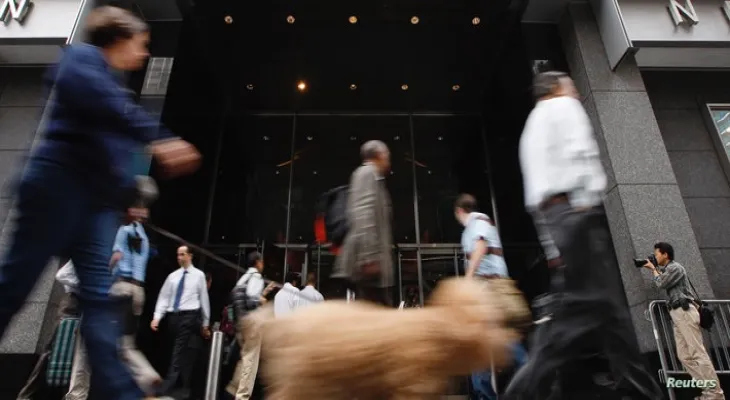Search here
Newspaper
Search here

Arab Canada News
News

Published: March 20, 2023
The rapid collapse of Silicon Valley Bank in the United States, followed by Credit Suisse in Europe, has caused panic among investors worldwide. Is the world now facing a banking crisis?
The American bank, headquartered in California, reached this turning point after it was forced to sell bonds purchased with customer deposits at a loss. Without sufficient cash, the bank, which ranks 16th in terms of asset size, collapsed.
As for the prestigious Swiss bank, which was established 167 years ago and is among the largest wealth managers in the world, its shares lost a quarter of their value last week and it had to borrow $54 billion while suffering from scandals and mismanagement.
Although the American and Swiss banks differ in terms of assets, operating methods, and geographical location, they share the fact that they lost the trust of customers and investors, in addition to the budget problem, according to the British newspaper The Guardian.
Paul Kofman, Dean of the Business and Economics School at the University of Melbourne, says: "The linking factor is emotions." He says this differs from the global financial crisis, whose common link was investments in loans such as mortgages.
Will there be repercussions?
The New York Times said in its analysis that the banking crisis appeared last week ready to turn into a full financial collapse, following the decline in oil prices and market volatility. Jay Bryson, Chief Economist at the American Wells Fargo Bank, said: "There will be real and lasting economic repercussions, even if the dust settles."
However, Shane Oliver, Chief Economist at AMP, excludes the occurrence of a banking contagion. He told The Guardian that during the past period, some sectors, such as the technology sector, remained resilient, indicating that some investors expect the banking crisis risk to wane.
The Guardian says that the rapid changes in stock prices and the quick withdrawal of bank customers' deposits are due to social media and its ability to spread information quickly, which happened with the American bank that collapsed only 48 hours after announcing the sale of bonds at a loss, and it also did not take long between the Swiss bank's announcement of obtaining a loan and its request for a bailout.
Kenneth Rogoff, Professor at Harvard University and researcher in financial crises, does not expect, in his talk to The New York Times, a repeat of what happened in 2008, when the collapse of the US mortgage market nearly swept the entire global financial system.
Currently, banks around the world enjoy a better financial position and regulatory framework than they did in 2008.
Rogoff said that for a financial crisis to occur, some factors must merge together, indicating that a rise in interest rates alone will not be a problem.
However, experts are concerned about the existence of such serious problems in a large institution like Silicon Valley, threatening the entire banking system without being detected. This raises questions about other potential threats that might be lurking, perhaps in less regulated sectors such as real estate or private equity.
What is the plan of central banks to avoid collapse?
Several central banks, led by the US Federal Reserve, announced a new strategy to ensure the flow of money in the global economy, to avoid a credit crisis like the one that swept markets during the financial crisis—that is, the difficulty for consumers and businesses to access the loans they need for mortgages and investments.
The new initiative will facilitate countries' access to the US dollar, distribute it to banks, and thus reach lenders.
The US Federal Reserve is expected to provide the central banks in Canada, Britain, Japan, Switzerland, and the Eurozone with dollars to ensure their functioning.
Will the trend of raising interest rates continue?
The New York Times says that the Federal Reserve faces a complex task after the recent crisis. While it was trying to raise interest rates to slow inflation, the problem of the American bank has put it in a difficult position.
Federal Reserve officials will hold a meeting on Tuesday and Wednesday amid uncertainty about the decisions they will make, knowing that recent data showed inflation rates in the United States increased rapidly in February.
Comments